|
|
|
|
Food security is one of the top priorities for the African continent. Among the factors that have been said to pose a threat to this goal is the ageing of the continent’s farm workers as young people seek opportunities in the urban areas. However, a study of employment trends in Ghana, Rwanda, Uganda, Zambia, Nigeria and Tanzania shows that the average age of the agricultural workforce is much lower than 60. Felix Kwame Yeboah and Thomas Jayne explain how they debunked the myth and what the true picture implies for a more effective agricultural strategy.
Meanwhile, Simon Roberts and Jason Bell call for much more accurate and timely information about food markets on the continent to ensure food security. Data on food prices are crucial for political and economic stability. They explain that the COVID-19 pandemic has highlighted the need for well functioning regional and national food supply chains. This can be achieved through the greater integration of regional economies. Such
integration, however, can’t be achieved without the appropriate support for investment in production, infrastructure and capabilities.
|
Godfred Boafo
Commissioning Editor: Ghana
|

|
|
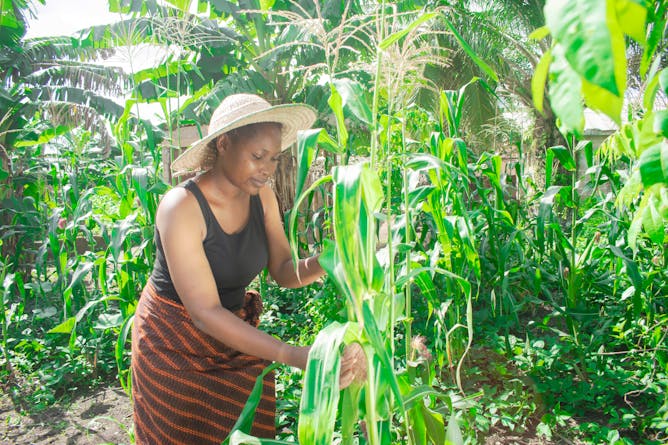
A young African farmer.
www.shutterstock.com
Felix Kwame Yeboah, Michigan State University; Thomas Jayne, Michigan State University
Africa is far from having an ageing farming population. What is missing is a critical mass of skilled, young farmers with access to finance who could drive productivity in farming.
|
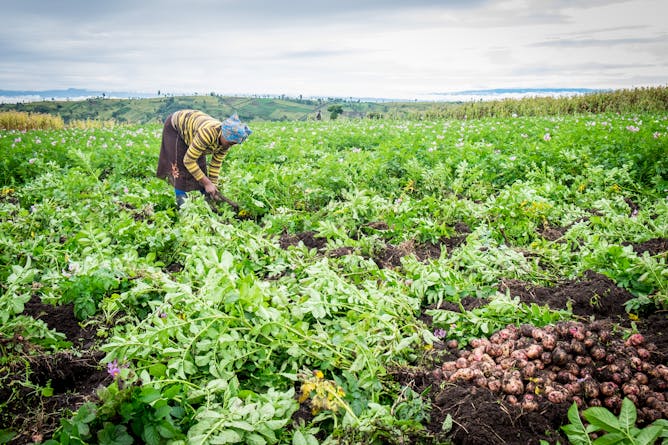
Data on food prices are crucial for political and economic stability but are not easily accessible.
Woman working in field
Simon Roberts, University of Johannesburg; Jason Bell, University of Johannesburg
Poor and inconsistent pricing data makes it hard to assess agricultural markets.
|
COVID-19
|
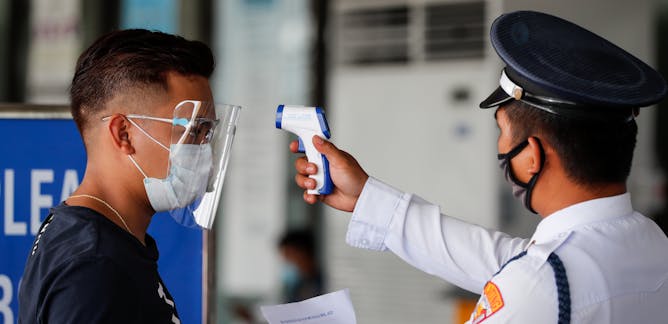
Zania Stamataki, University of Birmingham
Scientists were not surprised by reports on coronavirus reinfection; the lack of symptoms on reinfection is encouraging.
| |
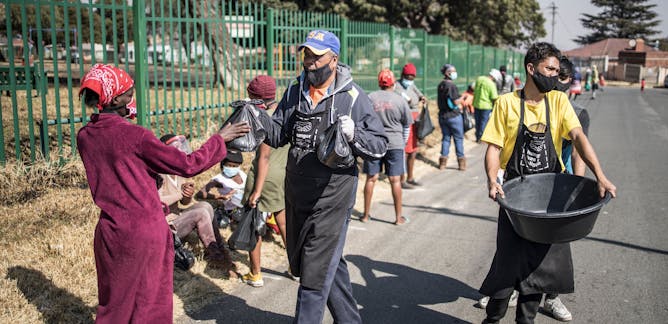
Chijioke Nwosu, Human Sciences Research Council; Adeola Oyenubi, University of the Witwatersrand
Poor populations bore a disproportionately higher burden of poor health.
|
|
|
Business + Economy
|
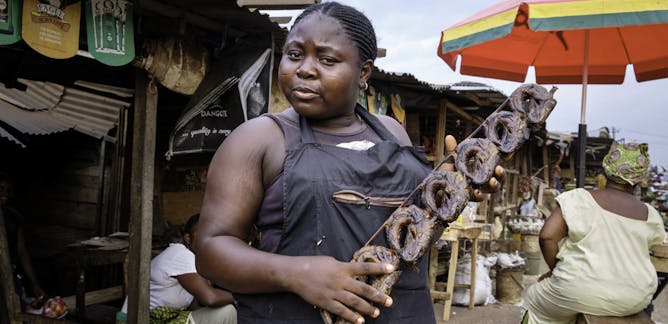
Adegboye, Folasade Bosede, Covenant University
Although COVID-19 measures have had a negative impact on food supply in Nigeria, there are other factors responsible for the dramatic rise in food prices.
| |

Dan Banik, University of Oslo; Nikolai Hegertun, University of Oslo
A more explicit emphasis on the national interest may encourage donor countries to play ‘the long game’ in Africa.
|
|
|
Health + Medicine
|

Alex Johnstone, University of Aberdeen; Leonie Ruddick-Collins, University of Aberdeen
Researchers are only beginning to understand the relationship eating time and circadian rhythm have on our body weight.
| |

Chimwemwe Kwanjo Banda, University of Malawi; Adamson S. Muula, University of Malawi
To reduce the prevalence of diabetes in Malawi, efforts to promote healthy eating should target the entire population and not only people who have diabetes.
|
|
|
En Français
|

Elsa Gisquet, Sciences Po – USPC
Sous couvert de se protéger de la Covid-19, les foules sont maintenues à distance. Mais n’est-ce pas tous simplement que l’on ne supporte plus l’autre ?
| |

Gaël Gueguen, TBS Business School
Depuis 2010, la plupart des Tours peuvent être qualifiés de « contrôlés », avec peu de suspense. L’édition 2019 fait exception. De bon augure pour la Grande Boucle 2020, qui s’élance ce samedi ?
|
|
|
En español
|
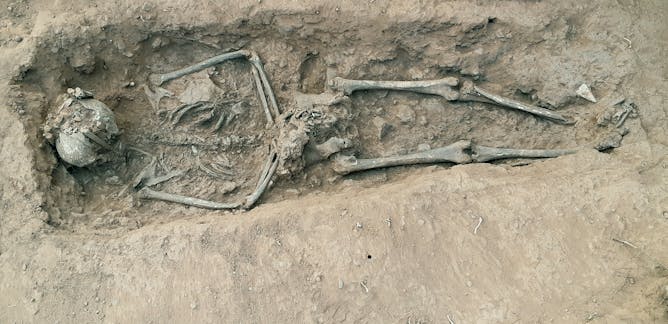
Alfredo González Ruibal, Instituto de Ciencias de Patrimonio (Incipit -CSIC); Lourdes Herrasti, Sociedad de Ciencias Aranzadi
Las exhumaciones de las fosas de la Guerra Civil no solo permiten la recuperación y el entierro digno de los asesinados, sino también conocer de forma científica el pasado.
| |

Eduardo Villalobo Polo, Universidad de Sevilla
El nuevo método SalivaDirect tiene el potencial de revolucionar el diagnóstico masivo de la COVID-19.
|
|
|
| |
| |
| |
| |
| |
| |
|
|
|
|
|
|
|